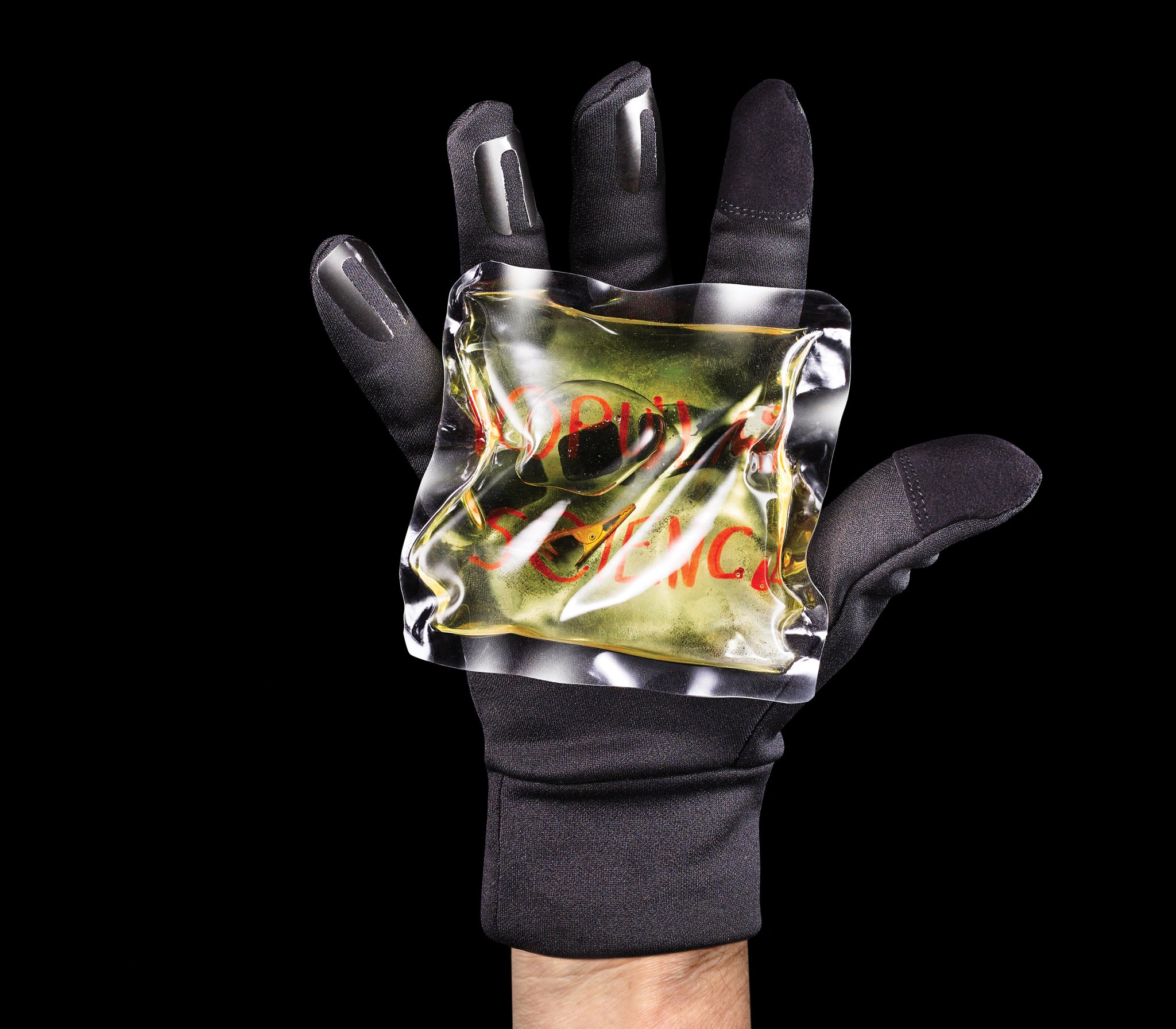

Cold weather makes for cold hands—unless, of course, you have a hand warmer. Don’t waste money on those cheap disposable ones. Instead, use kitchen chemistry to make your own reusable versions.
When vinegar and baking soda react, they form a compound called sodium acetate. This chemical has a high freezing point, so in liquid form at room temperature, it is supercooled. In such a state, a single sodium acetate crystal will trigger all the liquid to freeze solid, which releases enough energy to heat a bag of sodium acetate to about 136°F. Once it cools down, users can drop the bag into boiling water, reliquefying the chemical and readying it for another use.
To make a portable hand warmer, seal some sodium acetate, an alligator clip, and a crystal in a vinyl packet. When the chemical solidifies, squeezing the clip open and closed will trap crystals between its teeth. Heat the packet to liquefy the contents, and when you’re ready for instant warmth, pinch the clip to expose the crystals.
How To Make Your Own Hand Warmers
Stats
Time: 3 hours
Cost: $20
Difficulty: 2/5
Materials

• White vinegar
• Baking soda
• Glass jar
• Food coloring (optional)
• Resealable plastic bag (optional)
• Parchment paper
• Clear vinyl
• Colorful permanent markers (optional)
• Alligator clip
Instructions
Warning: Be careful not to burn yourself. And make sure to work in a well-ventilated room—hot vinegar and hot vinyl stink.
Pour vinegar into a saucepan and slowly add 1 tablespoon of baking soda per cup of liquid, constantly stirring to prevent the mixture from bubbling over. Boil over medium heat until it loses about half its original volume and a white crust begins to form around the edges.
Carefully pour the yellowish liquid—the sodium acetate—into a jar. To change the color, stir in a few drops of food coloring. When the saucepan is completely cool and dry, scrape up and save the residue of white crystals.
For an easy hand warmer, just pour sodium acetate into a resealable bag and add a crystal to activate it. To reuse, suspend the bag in boiling water until the sodium acetate reliquefies, then let it cool. When you want it to warm up again, add another crystal.
For a more permanent container, cut a shape out of parchment paper with a tab protruding from one edge. Sandwich the paper between two pieces of vinyl, leaving plastic margins of about an inch. To decorate the vinyl, draw on its inside surface.
Line a baking sheet with parchment paper and bake the vinyl at 350°F for three minutes. When it cools, trim around the edges to free the paper tab, then use tweezers to pull out the paper shape and leave a vinyl pouch.
Where the paper tab left a gap, insert the funnel and fill the pouch with liquid sodium acetate, an alligator clip, and a solid crystal. Seal the hole in the vinyl with a hot iron, using parchment paper to prevent direct contact. Pinch the clip to set the trigger, then re-liquefy the sodium acetate.
This article was originally published in the December 2014 issue of Popular Science.
